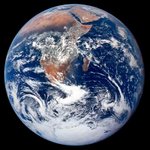Émission de L'Autre Monde du 24 janvier 2008: Réserve mondiale de semences de Svalbard


Émission de L'Autre Monde du 24 janvier 2008: Réserve mondiale de semences de Svalbard
Pour écouter, simplement cliquer sur le lien ici: L'Autre Monde 24 janvier 2008
Pour télécharger, faite un clique droit puis “enregistrer la cible sous…”
-Svalbard Global Seed Vault (réserve mondiale de semences de Svalbard) sur l’île norvégienne de Spitsbergen, qui fait partie du groupe des îles de Svalbard.


"Doomsday Seed Vault" in the Arctic
Bill Gates, Rockefeller and the GMO giants know something we don’t
by F. William Engdahl
Global Research, December 4, 2007
"Doomsday Seed Vault " (Reserve de Semences du Jugement Dernier ), dans l 'Arctique
World food price rises set to hit consumers
Wheat markets soar on renewed tight supply fears
Global wheat prices surged more than 3 percent on Monday, with
Wheat prices have nearly doubled since the start of the year, fanning fears about food-price led inflation at a time the global economy could slow, and industry officials said crop worries and strong global demand would keep prices firm until a clearer picture emerged early next year about U.S. plantings.
Green Living">Demand for palm oil 'is damaging the planet'
Growing demand for Asian palm oil by some of the world's largest companies, such as Unilever, Nestlé and Procter & Gamble, is now one of the principal drivers of climate change, the environmental pressure group Greenpeace says.
"Ooooh, you icky humans; I just wish you would all die and leave the Earth in peace!"
(ahem)
Ever stop to think that changing the Earth is our NATURAL behavior? Beavers build dams, and so do we. Bees build hives, termites build mounds, ants build tunnels, and so do we. Why is it a bad thing for us to do, but not the other animals?
And don't start in that the animals do not damage the environment as much as man. Termites create methane, a far more powerful greenhouse gas than carbon dioxide, and the total biomass of termites is ten times that of humans.
Change IS the natural order of things.
Corn boom could expand ‘dead zone’ in Gulf
Farmers say crop too profitable to stop, despite problems downstream
The price for
Japan to Increase Emergency Stockpiles of Grains, Yomiuri Says
Japan, the world's biggest grain importer, plans to increase emergency stockpiles of corn, wheat and soybeans next year to ensure stable supplies at a time of soaring global prices, the Yomiuri newspaper reported.
USDA Recommends That Food From Clones Stay Off the Market
January 16, 2008,
The U.S. Department of Agriculture yesterday asked
FDA says food from cloned animals safe to eat
The
Yeah, well, the FDA thought VIOXX was safe, too.
Here is the problem. Clones are NOT exact copies. Cloned animals like Dolly the sheep have demonstrated that current cloning techniques are far less than 100% accurate. In other words, there are genetic transcription errors taking place, such that the genes are artificially mutated from source animal to the clone. The effects of these transcription errors are usually visible only at the biochemistry level. But the fact is that short of killing the clone and running a full assay, one cannot rule out the production of altered enzymes and proteins which may be harmless to the clone, but harmful to consumers who consume the products from that animal.
Honeybees may be wiped out in 10 years
Honeybees will die out in
Whole colonies of bees are already being wiped out, with current methods of pest control unable to stop the problem.
Science & Tech">Mobile phone radiation wrecks your sleep
The research, sponsored by the mobile phone companies themselves, shows that using the handsets before bed causes people to take longer to reach the deeper stages of sleep and to spend less time in them, interfering with the body's ability to repair damage suffered during the day.




![[Most Recent Quotes from www.kitco.com]](http://www.kitconet.com/images/quotes_special.gif)





Aucun commentaire:
Publier un commentaire